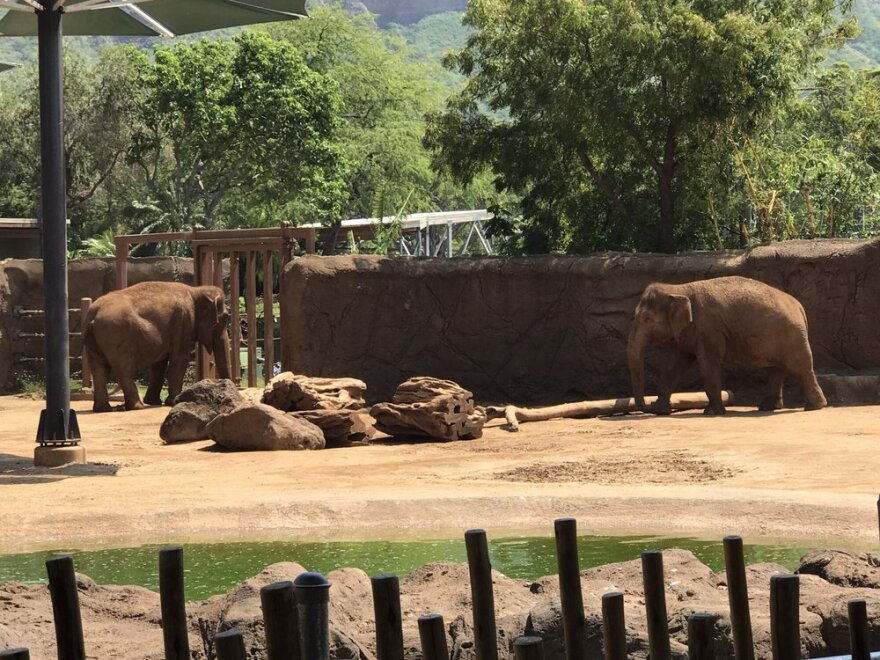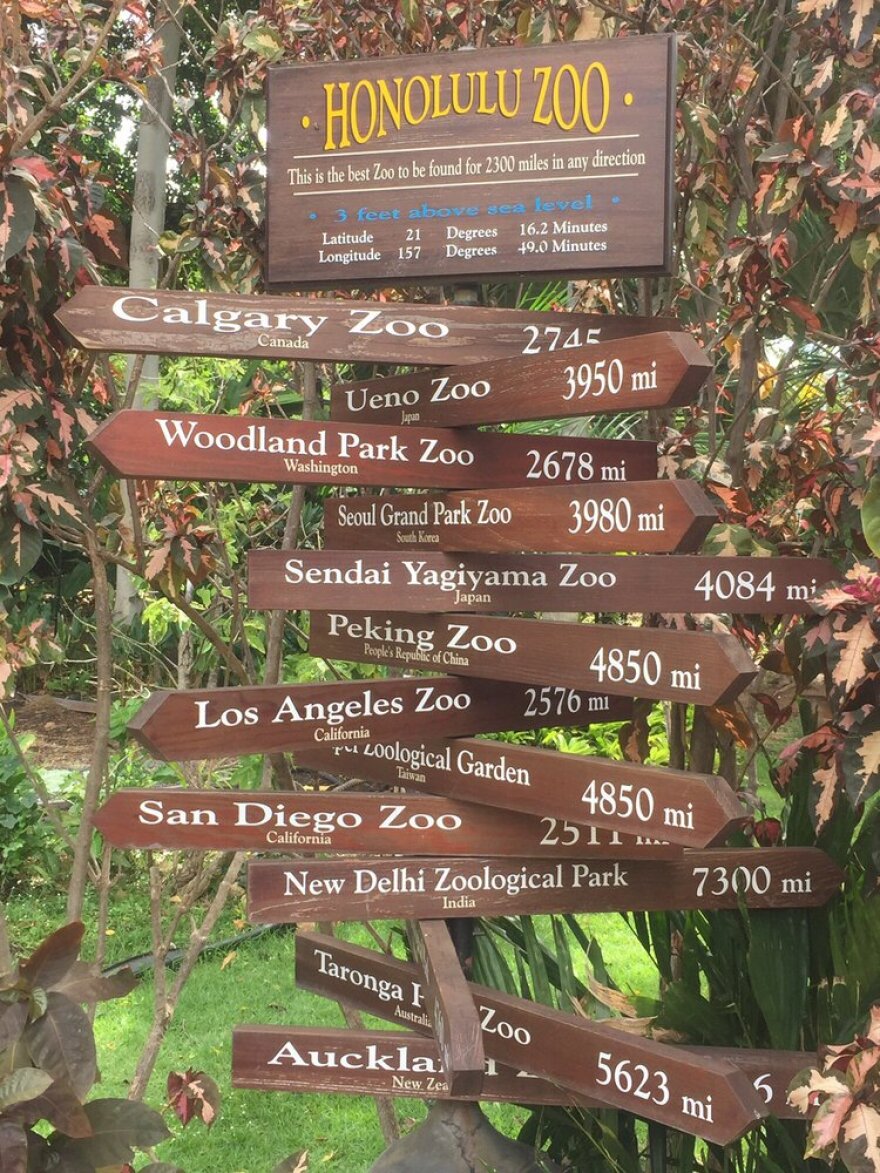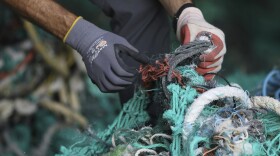City officials are hoping a new program will help the Honolulu Zoo recover from a series of setbacks in recent years. Over the last five years, Hawai’i’s largest zoo has suffered drops in attendance and revenue, and even lost accreditation with the Association of Zoos and Aquariums. Last month, the city launched a sponsorship program encouraging community involvement in zoo operations. HPR’s Ku’uwehi Hiraishi reports.
2-year-old Hugo Kahili-Heede is unbuckled from his stroller by his grandmother Tua Heede so he can get a closer look at the white-handed gibbons.

“This is Hugo’s first time here,” says Heede, “He was excited when I told him I was going to take him to see the animals.”
A visit to the Honolulu Zoo off Kapahulu Avenue in Waikiki is a family tradition for Heede. She would bring her kids here quite a bit.

For many keiki in Hawai’i, a trip to the Honolulu Zoo is their first chance to see animals like monkeys, elephants, and for this group of students from Lincoln Elementary…flamingos.

Wilson Neal is one of the chaperones for today’s field trip.
“Besides just watching a film or reading a book, they actually get to experience and see it alive, an animal, ‘Oh, we talked about that in class,’” says Neal.

With more than 900 animals on its 42-acre property, the city-run Honolulu Zoo sees anywhere from 1,500 to 2,000 visitors every day. Zoo operations depend largely on an annual $6.8 million from the city, but that only covers half of what it needs to be fully operational.

Here’s Honolulu City Councilwoman, Kymberly Marcos-Pine.
“It’s time that we be creative to find new revenue sources that don’t hurt local people’s pocket books,” says Marcos-Pine.

She spearheaded a zoo sponsorship program based largely on public-private partnership models she found in zoos across the nation.
“We cannot continue to run the city the way we always have, where we just always depend on the tax payer to carry the heavy burden of funding the city,” says Marco-Pine.
The program offers the public an opportunity to pay for more of what they want. A primate exhibit fan? The program allows you to finance the animal exhibit and in return be recognized for that contribution. Here’s new Honolulu Zoo Director Linda Santos.

“The sponsorship program, what it will do, is it’ll give people an opportunity if they want to sponsor like a corporation wants to sponsor an exhibit or maybe it could be something as small as redoing park benches – something that will enhance visitor experience,” says Santos.
Santos sees the sponsorship program as an opportunity to give the surrounding community a greater stake in the future of the zoo.




